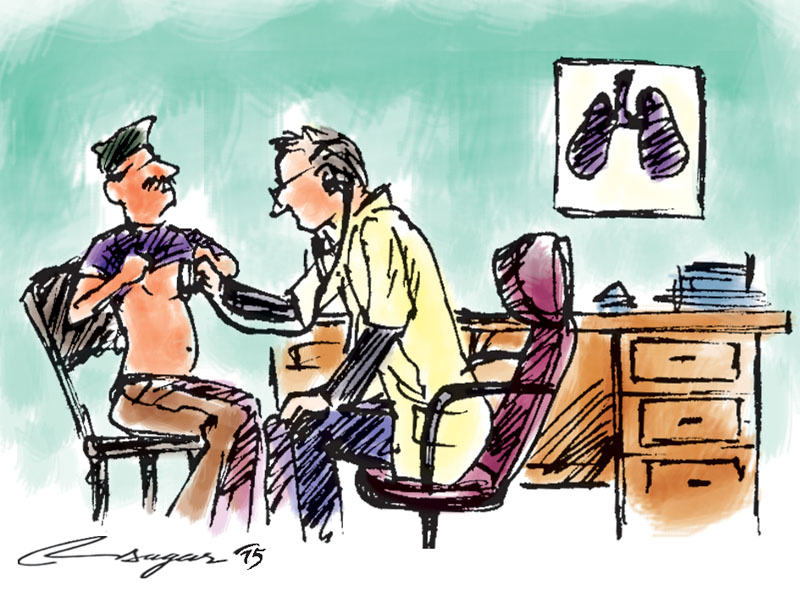More and more people suffering from COPD, say docs
Kathmandu, March 19
Many people in Kathmandu experience respiratory problems, more frequently than they previously used to.
Even college students have to see their doctors.
Senior doctors say such problems could be linked to increasing pollution and urged everyone to remain cautious and avoid long exposure to dust particles and smoke since that could lead to Chronic Obstructive Pulmonary Disease (COPD).
COPD cases are common in hospitals of Kathmandu, but due to lack of research, senior doctors have not be able to say how much pollution contributes to COPD.
Senior doctors of three major hospitals in Kathmandu said they have come across many COPD cases from all over the country.
Though it is a fact that pollution is a major causes of bronchitis leading to COPD there are other factors contributing to this disease.
“Without research it will be difficult to single out pollution as the sole cause of COPD cases in hospitals. However, one can easily assume that the alarming pollution in Kathmandu is contributing immensely,” said senior doctor Arjun Karki, vice-chancellor of Patan Academy of Health Sciences.
“COPD cases are alarming,” said Dr Karki, adding that it will turn fatal after some decades when exposure to pollution for years takes its toll.
Dr Manen Prasad Gorkhali, MD Programme Coordinator at Bir Hospital said more than 50 per cent of admitted patients were COPD cases at Bir Hospital. He, however, said he couldn’t say that all such cases were directly linked to pollution though pollution has contributed to a certain extent.
Causing irreversible damage to the lungs, COPD has become a real threat to people exposed to dust and smoke.
COPD is seasonal as well and it becomes acute during winter when patients need to increase their regular dose of medication.
Senior doctor at Tribhuvan University Teaching Hospital (TUTH) Dr Karbir Nath Yogi said that four out of every 10 patients come to TUTH with respiratory problems.
He, however, said most cases related to pollution were bronchial asthma. Such allergic problems can be cured completely if the patient receives treatment during the initial stage, but COPD is not curable.
Dr Yogi said more and more school and plus-two students were visiting doctors with respiratory complaints.
According to Dr Karki, Kathmandu denizens use general masks and think they are safe, but that is false assurance. “We should go for standard and sophisticated special masks like N95,” he said.
Exposure to smoke and dust must be avoided and one should not sit near smokers as non-smokers will be affected. People in vulnerable work-places, including at cement factories and rural women using firewood for cooking were vulnerable to COPD, besides heavy and long time smokers.






